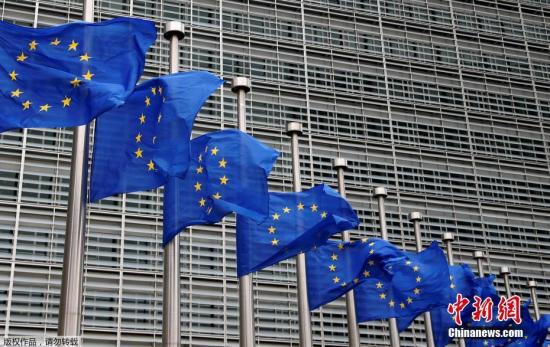The European Union announced on the 10th that, after investigations, it was initially determined that the US Internet giant Amazon disrupted fair competition in the retail industry in major European markets and was suspected of using its scale, power and "big data" to gain an unfair competitive advantage on third-party sellers on its platform.
The European Union launched a second investigation on the same day to determine whether Amazon will give special treatment to sellers of self-operated products and using its logistics and distribution services.
[Improper use of data]
Margaret Westage, Executive Vice President of the European Commission, introduced at a press conference that day that the European Commission began investigating how Amazon uses data from sellers sold on its platform in July last year.
Data map: European Union headquarters building in Brussels, Belgium.
Vestag said that investigators sampled and analyzed Amazon’s 80 million transactions and 100 million products in the European market and found that real-time transaction data from third-party sellers would be fed back into Amazon’s retail business algorithm.
"Based on these algorithms, Amazon will decide what new products to launch, how to price, how to manage inventory, and select the best supplier," Vestagg said. "We therefore initially determined that Amazon is using these data to Focus on selling the best-selling products, marginalize third-party sellers and limit their development capabilities."
Vestag said that the European Commission’s allegations are linked to Amazon’s activities in France and Germany.
France and Germany are Amazon's two largest markets in Europe.
Reuters reported that Amazon issued a statement on the 10th to oppose the EU allegations, claiming that it "accounts for less than 1% of the global retail market and has larger retailers in all countries where it does business."
[Take care of your "family"? 】
The European Commission launched a second investigation on Amazon on the 10th to determine whether the company preferentially treats self-operated products and third-party sellers who use Amazon's self-operated logistics and express delivery services.
The British "Guardian" reported that some people are worried that Amazon's platform sales rules are biased towards its own products and services.
The EU will review the "golden shopping cart" and "Prime" membership labels and their relationship with Amazon logistics and delivery services.
Investigators will pay attention to what criteria the platform uses to select products that can be added to the "golden shopping cart".
The "golden shopping cart" is usually located in the most convenient place that consumers can see.
As long as the consumer clicks, the page will automatically jump to the retail store that has this "golden shopping cart".
More than 80% of Amazon's transactions are completed through the "golden shopping cart", and the "golden shopping cart" treatment is essential for sellers.
Reuters reported that the raging new crown epidemic has caused a surge in online sales in areas where the "closure" is implemented, magnifying Amazon's role in the global economy.
Vestag pointed out that online sales in Europe have almost doubled in the past five years and this year is close to 720 billion euros.
She believes that given the importance of e-commerce, Amazon’s rules “should not be artificially biased towards their own retail products or the products of retailers using its logistics and distribution services”.
[One and two jobs]
Reuters reported that the European Commission has been investigating whether Amazon's dual role as both a platform and a seller hinders competition.
Amazon faces similar scrutiny in the United States.
The US Congress released an antitrust investigation report earlier this year regarding Amazon's alleged abuse of market power, which may become the basis for US regulators to sue Amazon in the future.
Congressional Democrat David Sizeland has called on the Federal Trade Commission to take action similar to the EU.
The EU may make a final ruling next year.
If it is found that Amazon has a monopoly, the EU may impose a fine of 10% of its global turnover.
But Amazon can seek a settlement in advance to avoid being convicted of violations and high fines.
Reuters reported that in recent years, global regulators have continued to try to "set rules" for Internet giants. These large companies dominate their respective fields and have a large amount of user data.
The European Union has previously issued high fines to companies such as Google's parent company Alphabet.
(Ocean) (Xinhua News Agency special feature)

